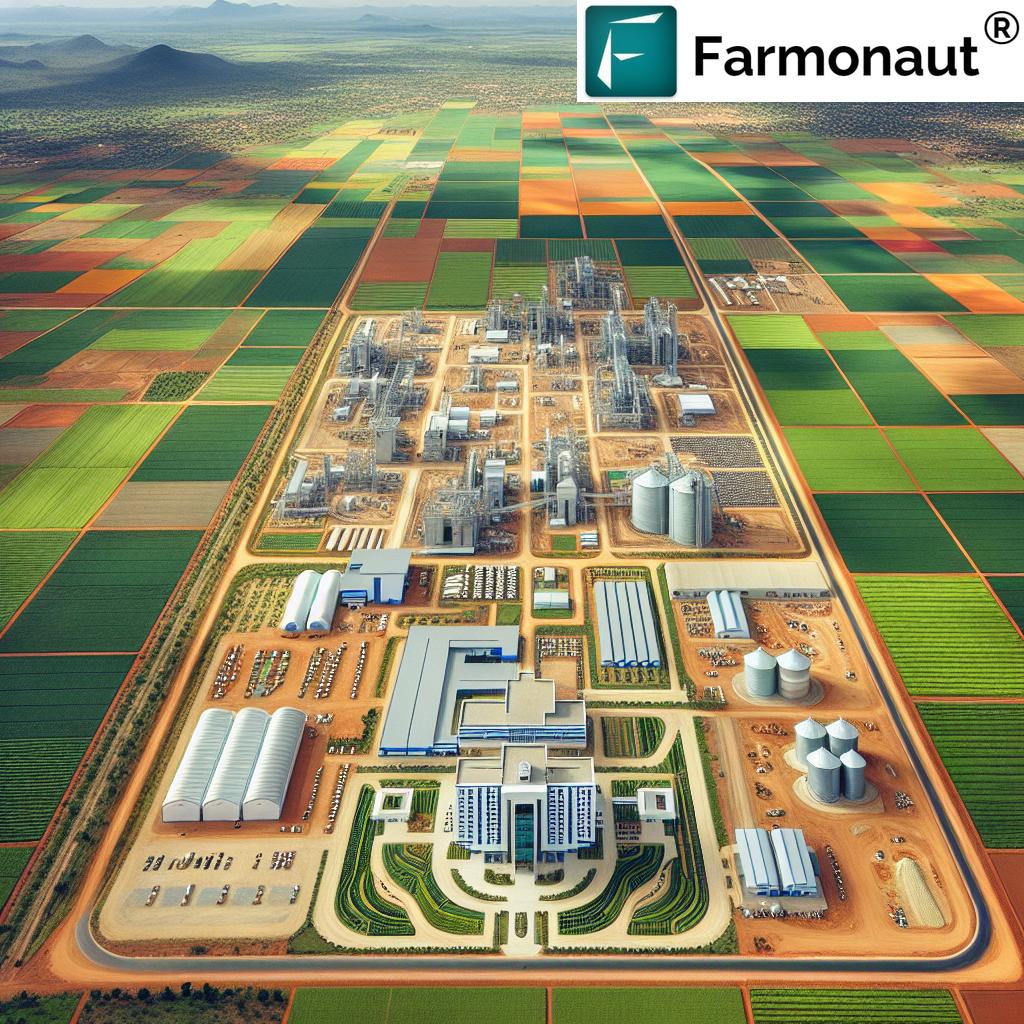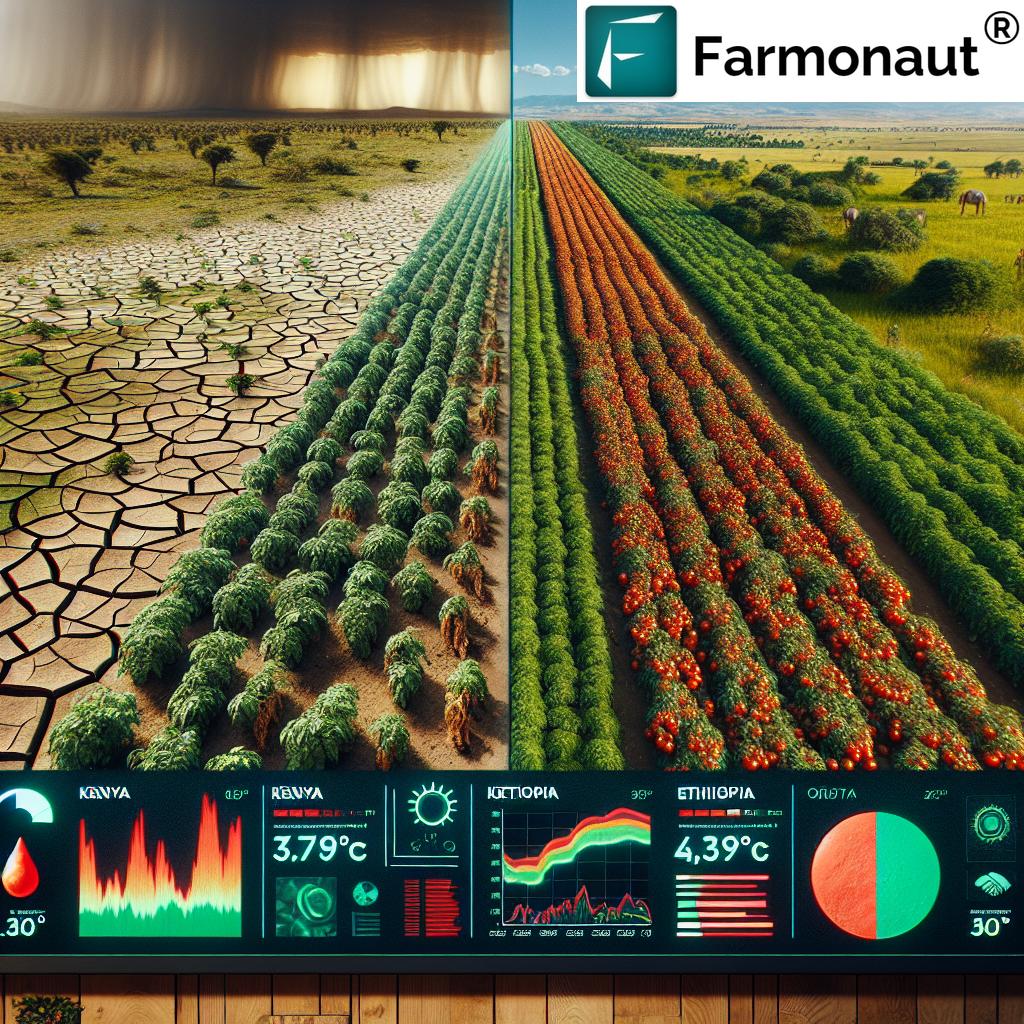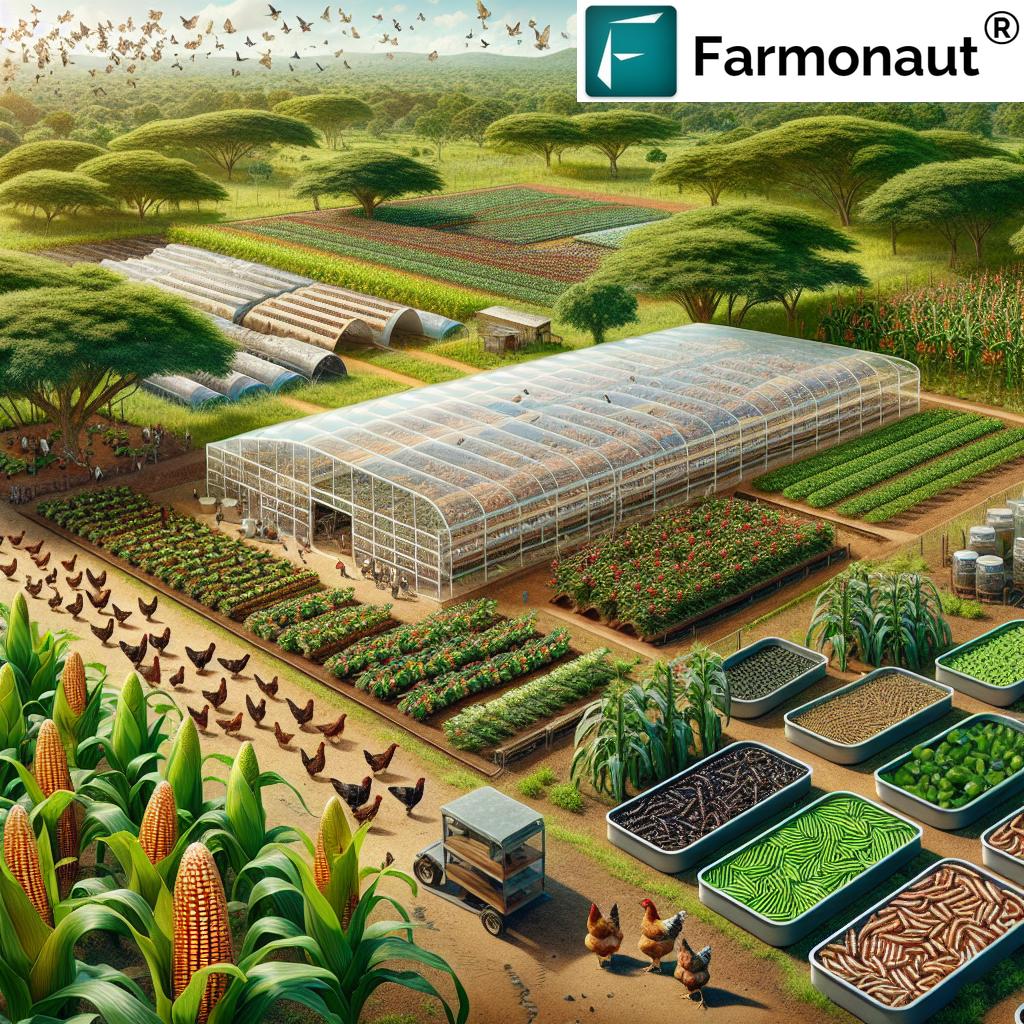Revolutionizing Oyo’s Agriculture: Ibarapa Agribusiness Hub Sparks Rural Economic Development and Job Creation
“The new agribusiness industrial hub in Oyo State, Nigeria, spans an impressive 3,250 hectares of land.”
In the heart of Oyo State, Nigeria, a transformative agricultural revolution is taking shape. We are witnessing the dawn of a new era in agribusiness as the Ibarapa Agribusiness Hub emerges as a beacon of rural economic development and job creation. This ambitious project is set to redefine the agricultural landscape of the region, bringing with it a wave of opportunities and innovations that promise to uplift local communities and put Oyo on the global agricultural map.
The Genesis of Ibarapa Agribusiness Hub
The Ibarapa Agribusiness Hub is not just another agricultural project; it’s a visionary initiative that spans an impressive 3,250 hectares of land. This massive undertaking is the brainchild of Oyo State Governor Engr. Seyi Makinde, who has recognized the strategic importance of agribusiness to the state’s economy. The project aims to transform the moribund Eruwa Farm Settlement into a thriving agribusiness industrial zone, creating thousands of jobs for the youth in the Ibarapa region.
At the groundbreaking ceremony, Governor Makinde emphasized that this project would not only modernize agricultural practices in the area but also firmly establish Ibarapaland on the global agricultural map. This bold move aligns perfectly with the state’s broader vision of agricultural industrialization and rural development.

Infrastructure Development: Paving the Way for Progress
Understanding that the success of any agribusiness venture hinges on robust infrastructure, the Oyo State government has taken decisive steps to ensure the Ibarapa Agribusiness Hub’s success. A key component of this strategy is the expedited completion of the Ido-Eruwa road, a critical piece of infrastructure that will facilitate investment and commerce in the region.
- The government has allocated a substantial N2 billion to the road project
- This investment underscores the administration’s commitment to creating an enabling environment for agribusiness
- Improved road networks will significantly reduce transportation costs and time for agricultural products
By prioritizing infrastructure development alongside the agribusiness hub, the government is laying a solid foundation for sustainable growth and attracting both domestic and international investors to the region.
OYSADA: The Driving Force Behind Agribusiness Development
Central to the success of the Ibarapa Agribusiness Hub is the Oyo State Agribusiness Development Agency (OYSADA). This agency has been instrumental in promoting agribusiness throughout the state and serves as the primary vehicle for implementing the government’s agricultural transformation agenda.
OYSADA’s achievements include:
- Successfully piloting the Fasola Agribusiness Hub, which served as a model for the current Eruwa project
- Developing comprehensive strategies for transforming moribund farm settlements into vibrant agribusiness centers
- Fostering partnerships with private sector entities to drive investment in the agricultural sector
The agency’s work exemplifies how government initiatives can catalyze significant changes in the agricultural landscape, creating a ripple effect of development across rural communities.
The Ibarapa Agribusiness Hub: A Closer Look
Dr. Debo Akande, the Director-General of OYSADA, provided insights into the ambitious scope of the Eruwa Agribusiness Hub. This project is not just about revitalizing a single farm settlement; it’s about creating a comprehensive ecosystem for agricultural growth and innovation.
“Ibarapa Agribusiness Hub aims to create thousands of jobs, potentially transforming the region’s rural economy.”
Key features of the hub include:
- Diverse facilities for crop and livestock production
- State-of-the-art agricultural processing centers
- An advanced agribusiness training center
- An eco-resort aimed at boosting local tourism and raising Eruwa’s profile
The hub is projected to attract a public-private investment of around $40 million, signaling strong confidence in the project’s potential to drive economic growth and create substantial employment opportunities.
Sustainable Farming Practices: The Core of the Hub
At the heart of the Ibarapa Agribusiness Hub lies a commitment to sustainable farming practices. This approach not only ensures the long-term viability of agricultural activities but also aligns with global trends towards environmentally responsible food production.
Some of the sustainable practices being implemented include:
- Water conservation techniques and efficient irrigation systems
- Integrated pest management to reduce reliance on chemical pesticides
- Soil conservation and enrichment programs
- Promotion of organic farming methods
By championing these practices, the hub aims to set a new standard for sustainable agriculture in Nigeria and beyond.
Agricultural Processing Centers: Adding Value to Farm Produce
One of the most exciting aspects of the Ibarapa Agribusiness Hub is the establishment of agricultural processing centers. These facilities will play a crucial role in adding value to farm produce, thereby increasing the income potential for farmers and creating additional employment opportunities.
The processing centers will focus on:
- Food processing and packaging
- Cold storage facilities to extend the shelf life of perishable goods
- Production of agricultural by-products
- Quality control and standardization to meet international export standards
By bridging the gap between raw agricultural production and value-added products, these centers will help position Oyo State as a key player in the agricultural value chain.
Empowering Local Farmers: Training Programs and Technology Transfer
The success of the Ibarapa Agribusiness Hub hinges on the empowerment of local farmers. To this end, the project incorporates comprehensive training programs designed to equip farmers with the skills and knowledge needed to thrive in a modern agricultural landscape.
These training programs cover:
- Modern farming techniques and best practices
- Use of agricultural technology and machinery
- Financial management and access to credit
- Marketing and business skills for agripreneurs
By investing in human capital development, the hub ensures that local farmers can fully participate in and benefit from the agricultural transformation taking place in their region.

The Role of Technology in Modern Agriculture
In today’s digital age, technology plays a pivotal role in revolutionizing agricultural practices. The Ibarapa Agribusiness Hub is embracing cutting-edge technologies to enhance productivity, efficiency, and sustainability. One such technology that could significantly benefit the project is Farmonaut’s advanced farm management solutions.
Farmonaut offers a range of tools that could be instrumental in the success of large-scale agricultural projects like the Ibarapa Agribusiness Hub:
- Satellite-based crop health monitoring for real-time insights
- AI-driven advisory systems for optimized farm management
- Blockchain-based traceability solutions for supply chain transparency
- Resource management tools for efficient operations
By leveraging such technologies, the hub can ensure optimal resource utilization, improve crop yields, and maintain high standards of quality and traceability.
Explore Farmonaut’s solutions:
Agribusiness Investment Opportunities: A Call to Investors
The Ibarapa Agribusiness Hub presents a wealth of investment opportunities for both local and international investors. The project’s scale and comprehensive approach create a fertile ground for various agribusiness ventures.
Some key investment areas include:
- Large-scale crop and livestock production
- Agro-processing and value addition
- Agricultural technology and innovation
- Logistics and supply chain management
- Agricultural research and development
Investors are encouraged to explore these opportunities, with the government providing various incentives and support mechanisms to facilitate investment in the agribusiness sector.
Impact on Rural Economic Development
The Ibarapa Agribusiness Hub is poised to have a transformative impact on rural economic development in Oyo State. By creating thousands of jobs and stimulating economic activity, the project addresses one of the most pressing challenges facing rural communities: youth unemployment and rural-urban migration.
Expected impacts include:
- Significant increase in agricultural productivity and output
- Rise in per capita income for rural households
- Development of ancillary industries and services
- Improved access to education and healthcare through economic growth
The ripple effects of this development are expected to extend far beyond the immediate vicinity of the hub, potentially serving as a model for rural transformation across Nigeria and Africa.
Ibarapa Agribusiness Hub Impact Overview
| Impact Area | Current Status (Estimated) | Projected Impact | Percentage Change |
|---|---|---|---|
| Number of Jobs | 5,000 | 20,000 | +300% |
| Annual Agricultural Production (tonnes) | 50,000 | 200,000 | +300% |
| Local GDP Contribution (Nigerian Naira) | 5 billion | 25 billion | +400% |
| Farmer Training Programs (participants) | 1,000 | 10,000 | +900% |
| Export Value (US Dollars) | 10 million | 50 million | +400% |
The African Development Bank’s Support
The significance of the Ibarapa Agribusiness Hub has not gone unnoticed by international development partners. The African Development Bank (AfDB) has reaffirmed its commitment to support agribusiness activities that contribute to rural transformation and economic development.
Dr. Abdul Kamara of the AfDB praised Governor Makinde’s efforts in revitalizing inert agricultural settlements in Oyo State, noting that such initiatives align perfectly with AfDB’s objectives to promote food security and agricultural transformation across Africa.
The AfDB’s support could potentially include:
- Financial assistance through loans and grants
- Technical expertise and capacity building
- Facilitating knowledge transfer and best practices from similar projects across Africa
This backing from a major international financial institution underscores the project’s potential and credibility on the global stage.
Community Engagement and Support
The success of the Ibarapa Agribusiness Hub relies heavily on the support and engagement of local communities. Recognizing this, the project has placed a strong emphasis on community involvement from the outset.
Key aspects of community engagement include:
- Regular consultations with traditional rulers and community leaders
- Incorporation of local knowledge and farming practices
- Prioritizing employment opportunities for local residents
- Developing programs to ensure equitable distribution of benefits
This inclusive approach not only ensures local buy-in but also helps in tailoring the project to meet the specific needs and aspirations of the Ibarapa community.
Environmental Considerations and Sustainability
As we embark on this ambitious agricultural transformation, it’s crucial to consider the environmental impact and ensure long-term sustainability. The Ibarapa Agribusiness Hub is designed with these considerations at its core.
Environmental measures include:
- Implementation of agroforestry practices to maintain ecological balance
- Use of renewable energy sources for processing and storage facilities
- Waste management and recycling programs
- Conservation of local biodiversity and natural habitats
By prioritizing environmental sustainability, the hub ensures that agricultural development goes hand in hand with ecological preservation, creating a model for responsible agribusiness practices.
The Road Ahead: Challenges and Opportunities
While the Ibarapa Agribusiness Hub presents immense opportunities, it’s important to acknowledge and prepare for potential challenges. These may include:
- Securing consistent funding for long-term development
- Adapting to climate change and unpredictable weather patterns
- Ensuring equitable distribution of benefits across all stakeholders
- Maintaining market competitiveness in a globalized agricultural economy
Addressing these challenges head-on will be crucial for the project’s long-term success and sustainability.
Conclusion: A New Dawn for Oyo’s Agriculture
The Ibarapa Agribusiness Hub represents a bold step towards revolutionizing agriculture in Oyo State and beyond. By combining modern agricultural practices, cutting-edge technology, and a focus on sustainability, this project has the potential to transform rural economies, create thousands of jobs, and position Oyo as a leader in agricultural innovation.
As we look to the future, the success of this initiative could serve as a blueprint for similar projects across Nigeria and Africa, showcasing the power of visionary leadership, community engagement, and strategic investment in agribusiness.
The journey ahead is filled with both challenges and opportunities, but with continued commitment from all stakeholders, the Ibarapa Agribusiness Hub is poised to usher in a new era of prosperity and growth for Oyo State’s agricultural sector.
FAQs
- What is the Ibarapa Agribusiness Hub?
The Ibarapa Agribusiness Hub is a 3,250-hectare agricultural development project in Oyo State, Nigeria, aimed at transforming the Eruwa Farm Settlement into a modern agribusiness industrial zone. - How many jobs is the project expected to create?
The project aims to create thousands of jobs for youth in the Ibarapa region, significantly boosting local employment opportunities. - What types of facilities will be included in the hub?
The hub will include facilities for crop and livestock production, agricultural processing centers, an agribusiness training center, and an eco-resort. - How is the project being funded?
The project is expected to attract a public-private investment of around $40 million, with support from the Oyo State government and potential backing from institutions like the African Development Bank. - What role does technology play in this project?
Technology plays a crucial role, with the potential integration of advanced solutions like satellite-based crop monitoring, AI advisory systems, and blockchain-based traceability to enhance agricultural productivity and efficiency.
Explore Farmonaut’s API solutions:
Farmonaut API
API Developer Docs



















